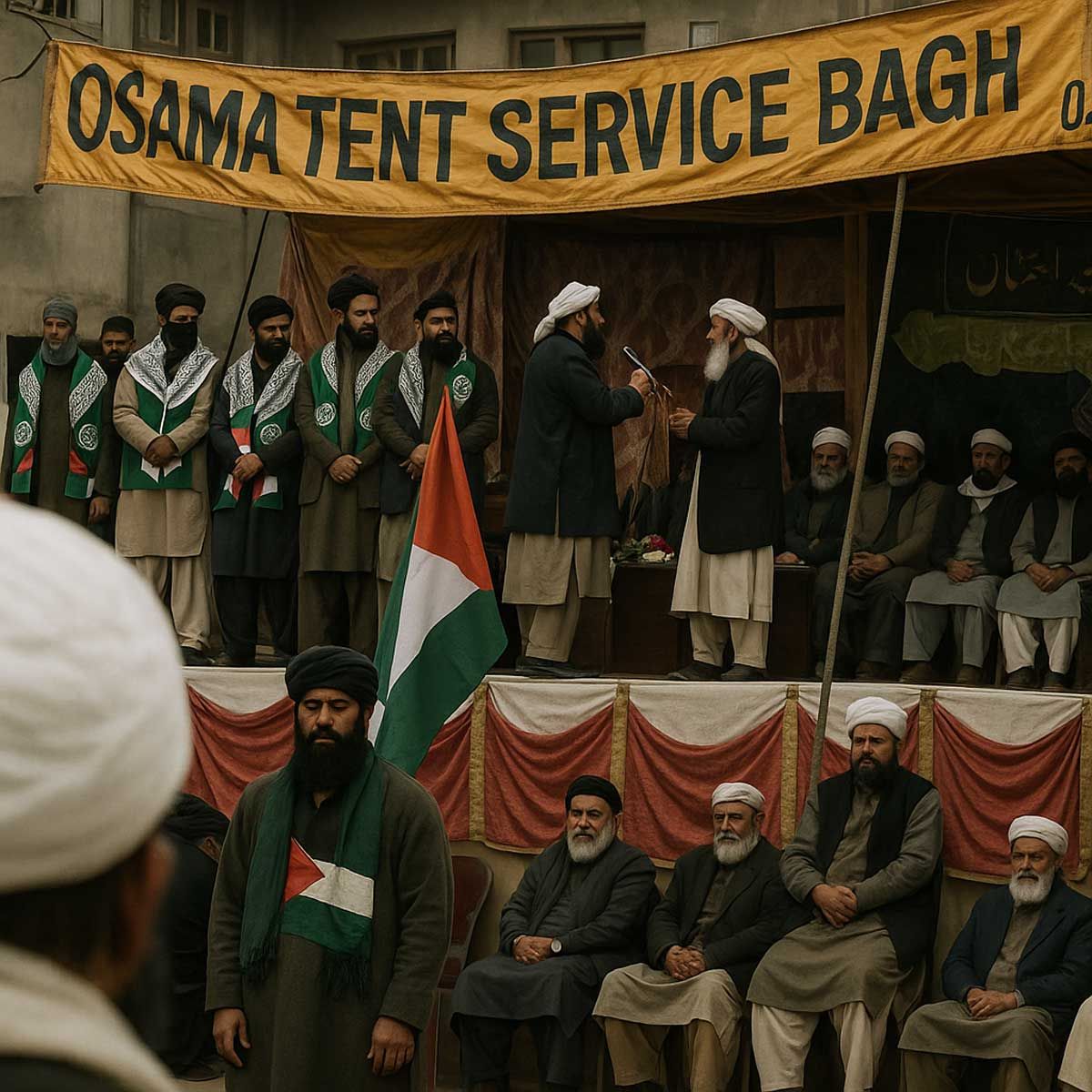Sanatan Articles
Satyaagrah
Written on
Satyaagrah
Written on
Satyaagrah
Written on
Satyaagrah
Written on
Satyaagrah
Written on
JOIN SATYAAGRAH SOCIAL MEDIA
WikiLeaks exposes Indira Gandhi's naive offer to share nuclear tech with unreliable Pakistan, her inner circle's leaks, US mistrust of her duplicitous rhetoric, and rampant corruption, revealing a leader whose missteps risked India's security & integrity

On October 31, 1984, Indira Gandhi, India’s then-Prime Minister, met a tragic end when she was assassinated by her own security personnel. Her leadership was a turbulent chapter in India’s history, marked by ambitious policies and significant blunders that left a mixed legacy.
While her public actions are well-known, WikiLeaks cables have unearthed lesser-known decisions that cast doubt on her strategic judgment. These documents reveal choices that, especially when dealing with a consistently unreliable neighbor like Pakistan, seem questionable at best. They expose a leader whose diplomatic moves often failed to account for the harsh realities of India’s tense neighborhood.
|
|
Indira Gandhi’s Willingness to Share India’s Nuclear Technology with Pakistan
In 2013, WikiLeaks cables brought to light a baffling decision by Indira Gandhi that raised eyebrows among analysts. After India’s 1974 nuclear test, a landmark achievement that rattled the region, Gandhi offered to share nuclear technology with Pakistan—a nation with a long history of hostility and broken promises toward India. A U.S. embassy cable quotes her directly: “I have explained in my letter to Prime Minister Bhutto the peaceful nature and the economic purposes of this experiment and have also stated that India is willing to share her nuclear technology with Pakistan in the same way she is willing to share it with other countries, provided proper conditions for understanding and trust are created. I once again repeat this assurance.”
This proposal to Pakistan’s Prime Minister Zulfikar Ali Bhutto appears dangerously naive, given Pakistan’s track record as an untrustworthy neighbor. The 1974 test, dubbed “Smiling Buddha,” was a proud moment for India but a provocation for Pakistan, which saw it as a direct challenge. Gandhi’s offer to share technology, tied to vague conditions of “understanding and trust,” overlooked the deep mistrust fueled by Pakistan’s frequent provocations.
Another cable reveals that Gandhi wrote to Bhutto, claiming India’s nuclear tests were no threat to Pakistan. Yet, the cable’s author notes that her letter mainly aimed to keep India’s scientific experiments from sparking controversy, suggesting her assurances were more about diplomacy than substance.
Gandhi’s decision to extend such an offer to a nation known for covert operations and shifting alliances was a risky miscalculation. Pakistan’s later pursuit of nuclear weapons, often through secretive means, underscores the folly of her approach. A 2013 article in The Times of India reported on the WikiLeaks revelation, noting that Gandhi’s offer shocked observers, especially given Pakistan’s relentless drive to match India’s nuclear capabilities (source: The Times of India, August 27, 2013). Her belief in peaceful cooperation with an unreliable neighbor raises serious questions about her ability to safeguard India’s strategic interests.
|
|
The Desire for Peace After the War of 1971
The WikiLeaks cables also highlight Gandhi’s questionable attempts to mend ties with Pakistan after the 1971 war, a conflict that crushed Pakistan and birthed Bangladesh. While the war strengthened India’s position, it deepened Pakistan’s resentment, cementing its status as a neighbor prone to provocation. In a letter to her Pakistani counterpart, Gandhi criticized the U.S. for resuming arms supplies to Pakistan, writing: “We have regretted this decision because it threatens to increase tensions in our region.”
Gandhi’s letter called for both nations to avoid an arms race and work toward cooperation, urging restraint in public rhetoric. She wrote: “We feel strongly that both our countries must desist from propaganda against each other. Nothing can be more damaging to the prospects of cooperation and the fulfilment of agreements already reached than the resumption of hostile public postures. From our side, I can assure you we will do nothing to encourage suspicion and hostility towards Pakistan and I hope your government will also exercise similar restraints.” This appeal assumes Pakistan would act in good faith, a risky bet considering its pattern of violating agreements and fueling tensions.
Gandhi’s push for peace, while idealistic, failed to account for Pakistan’s unwillingness to reciprocate. The 1971 war had exposed Pakistan’s vulnerabilities, but it also hardened its resolve to challenge India through any means, including proxy conflicts. Her call for cooperation, as revealed in the cables, misjudged Pakistan’s deep-seated hostility and its tendency to exploit diplomatic gestures. A 2012 piece in The Express Tribune reflected on the post-1971 period, noting that Pakistan’s aggressive policies persisted despite agreements like the Simla Agreement, highlighting the limits of Gandhi’s diplomacy (source: The Express Tribune, July 3, 2012). Her willingness to engage with an unreliable neighbor suggests a disconnect between her lofty goals and the gritty realities of regional politics.
|
A Mole in Indira’s Inner Circle
One of the most alarming revelations made by Wikileaks in 2013 was that the United States had planted a mole inside Prime Minister Indira Gandhi’s inner circle. The cables consistently referred to this source as someone from the "household", indicating that the individual had proximity to the highest levels of decision-making in the Prime Minister’s residence. This insider regularly passed on sensitive information to the US Embassy, including details about the internal politics and power dynamics surrounding the Prime Minister.
One such cable, discussing the controversial Emergency imposed in 1975, claimed that the real architects behind the move were Sanjay Gandhi and her trusted secretary R.K. Dhawan. It quoted directly:
“This is confirmed by a source close to the PM’s household. Both are non-ideological, extremely authoritarian in their general approach, and focused only on keeping Mrs Gandhi in power.”
This blunt assessment from within her own camp exposes the authoritarian culture that had formed around Indira Gandhi. Rather than surrounding herself with democratic-minded advisors, she leaned on a clique obsessed with control and power consolidation—regardless of ideological reasoning or public good.
A year later, another cable surfaced implicating Rajiv Gandhi’s close friend, Subramanian Swamy, in leaking crucial information. According to the cable:
“Subramanian Swamy suggested to department officer ten days ago that he heard Mrs Gandhi was prompted to set the March election date because she wanted to square things away in view of her failing health.”
Such disclosures cast a dark shadow on Indira Gandhi’s core team. Not only were her closest aides seen as authoritarian, but even private health concerns were being leaked abroad. The existence of such deep breaches within her trusted circle reflects a leadership that either underestimated foreign intelligence activity or was too absorbed in internal manipulations to recognize the risks.
|
Washington’s Unease with Indira Gandhi’s Rhetoric
If there was any illusion in Washington about Indira Gandhi’s diplomatic consistency, it was thoroughly shattered by multiple Wikileaks cables that revealed deep-rooted distrust and frustration within the US administration toward her.
While India was publicly critical of the American military presence in Vietnam, private conversations painted a hypocritical contrast. As per one such cable, Hurbert Humphrey, the then Vice President of the US and 1968 Democratic Presidential nominee, claimed that Indira Gandhi told him directly:
“It was absolutely essential that we (American Forces) were there.”
This complete reversal of public rhetoric shows how Indira Gandhi tailored her messages to suit different audiences, projecting anti-American nationalism domestically while privately endorsing the same American actions she criticized. It added to the growing perception of India under her leadership as being diplomatically duplicitous.
Another cable added that India saw the United States as a counterbalance to China, a threat that India had recognized long before the Americans. It read:
“India, it is sometimes hinted, protests against the US presence at Diego Garcia for form’s sake and to please its Parliament and that in reality, the Indians are glad that the US is there to check the growing Soviet power in the region.”
In short, India under Indira Gandhi was seen as two-faced—delivering sharp speeches against US military interests while quietly welcoming the very same military interventions as useful to India’s own strategic position in Asia.
Even worse was how Indira Gandhi repeatedly accused foreign powers of interfering in India’s internal affairs, a narrative she used heavily to justify her controversial decisions, especially during elections. According to one cable, these accusations “disturbed” several international observers, and their concerns were conveyed through Ambassador Saxbe. His message was blunt:
“In the best light, Mrs Gandhi’s elections could be seen as pre-election rhetoric; they could also be seen as justification for not holding elections.”
Such suspicions weren’t unjustified. The way Gandhi merged propaganda with governance cast doubt not only on her democratic intentions but also on her willingness to let India remain a transparent republic. Her tendency to play both victim and aggressor on the international stage raised serious questions about the credibility of her leadership.
|
The Massive Corruption
Beyond double standards and secretive dealings, Wikileaks cables also pulled the curtain on one of the darkest truths of Indira Gandhi’s rule: massive, systemic corruption. The now declassified US cables exposed how bribery was not the exception but the norm during her government’s tenure.
The documents detail that tenders were intentionally manipulated so that contracts would go to pre-selected bidders. This wasn't just casual favoritism; it was a well-oiled machinery where the bidding process was reduced to a mere formality. According to the cables, punishments for bribery were “rare”, and more worryingly, only selectively applied. When politicians from Indira Gandhi’s own party were involved in corruption, the government turned a blind eye. However, if someone from the opposition camp was found guilty, strict and visible punishment followed—clearly meant to silence critics and maintain political dominance.
This deliberate misuse of government machinery for personal and political benefit makes it evident that corruption was not an incidental by-product of her government, but a feature of how it functioned. The focus wasn’t on justice or reform—it was on control.
 Support Us
Support Us
Satyagraha was born from the heart of our land, with an undying aim to unveil the true essence of Bharat. It seeks to illuminate the hidden tales of our valiant freedom fighters and the rich chronicles that haven't yet sung their complete melody in the mainstream.
While platforms like NDTV and 'The Wire' effortlessly garner funds under the banner of safeguarding democracy, we at Satyagraha walk a different path. Our strength and resonance come from you. In this journey to weave a stronger Bharat, every little contribution amplifies our voice. Let's come together, contribute as you can, and champion the true spirit of our nation.
 |  |  |
| ICICI Bank of Satyaagrah | Razorpay Bank of Satyaagrah | PayPal Bank of Satyaagrah - For International Payments |
If all above doesn't work, then try the LINK below:
Please share the article on other platforms
DISCLAIMER: The author is solely responsible for the views expressed in this article. The author carries the responsibility for citing and/or licensing of images utilized within the text. The website also frequently uses non-commercial images for representational purposes only in line with the article. We are not responsible for the authenticity of such images. If some images have a copyright issue, we request the person/entity to contact us at This email address is being protected from spambots. You need JavaScript enabled to view it. and we will take the necessary actions to resolve the issue.
Related Articles
- Three generations of Nehru-Gandhi dynasty has visited Babur’s tomb in Afghanistan: Did you know?
- How Nehru had laid blue print of Indira Gandhi inheriting his PM post
- Was Indira Gandhi a Soviet Agent - 100 Years of Russian Revolution
- The Emergency: JP recited Dinkar evocative poem, ‘Singhasan khaali karo, ke Janata Aati hai’, Harvard-returned Subramanian Swamy and member of Rajya Sabha presciently speculated, ‘What if Mrs. Gandhi introduced martial law’
- Biggest Secret Reveal - How ties between Indra Gandhi and KGB made India a puppet of USSR during the Cold War
- Can Communism and Democracy Coexist - 100 Years of Russian Revolution
- How Communists betrayed India - 100 Years of Russian Revolution
- Saam Daam Dand Bhed: How Indira and Sanjay Gandhi pulled off the Maruti scam
- Golden time of Nehru dynasty, when assets of country like Indian Navy were used for Vacation and to 'pay respect' to Edwina Mountbatten's death
- “A river seems like a magic thing. Magic, moving, living part of earth itself”: Maharaja Ganga Singh, also known as Bhagirath of Kalyug who made Sutlej river of Punjab flow in the desert by constructing 'Ganga-Canal' that Congress renamed to Indira Canal
- Rare footage of Pakistan Army surrendering to Indian Armed Forces after the humiliating defeat in 1971 war: Vijay Diwas
- When in a special referendum in 1975 people of Sikkim chose India over monarchy to become the 22nd State of the Indian Union: Rule of the Chogyal king and his mysterious American Wife Hope Cooke ended
- "कालाध्याय": In the dark corridors of the 1980s, Coomar Narain and Colonel Alain Bolley orchestrated a deadly espionage ring, leaking top-secret defense files that not only endangered India's nuclear security but also manipulated billion-dollar arms deals
- "कालाध्याय": Dive into the harrowing story of Snehlata Reddy, who endured unjust imprisonment & torture during the Emergency, bravely resisting Indira Gandhi's regime until her tragic death just days after being released from prolonged, harsh captivity
- Depth of Soviet penetration in Indian media is exposed through declassified CIA document from 2011





















